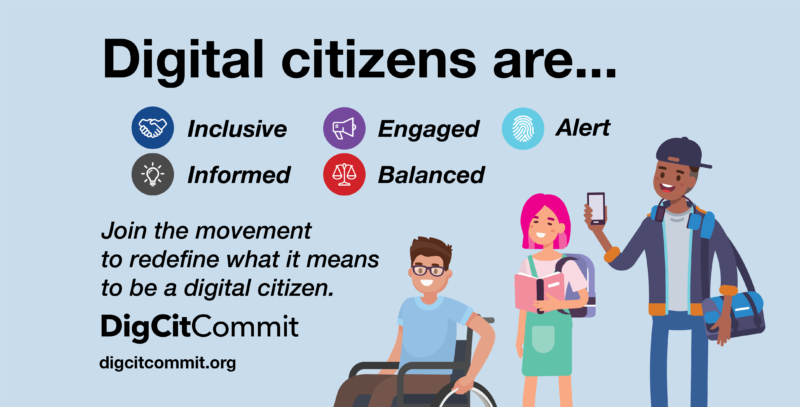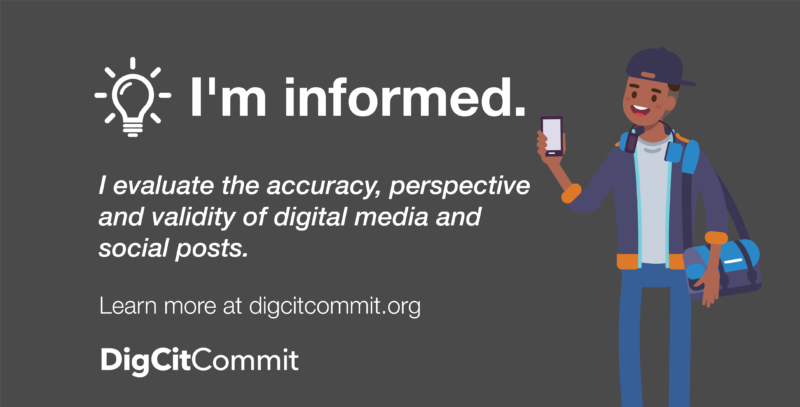KQED has joined a diverse group of tech, education, and media organizations to launch the Digital Citizenship Commitment campaign (DigCitCommit). Our goal is to reach one million students by 2021 by engaging educators and providing them with the tools to teach a new definition of digital citizenship and wellbeing.
Why do we need a new definition of digital citizenship?
The five new DigCitCommit competencies developed by the coalition – inclusive, informed, engaged, balanced, and alert – are designed to focus less on a list of DON’Ts and more on a proactive approach of DOs that challenge students to stay safe, solve problems and become a force of positivity. The DigCitCommit campaign and the competencies were previewed at ISTE19 to more than 20,000 attendees.
“As more and more of our interactions move to virtual spaces, the future of our democracy depends on our ability to prepare the next generation of leaders to be kind online, have a healthy balance between the types of online activities they engage in, and view technology as a tool to improve their physical and virtual communities,” says Richard Culatta, CEO of ISTE. “Digital Citizenship must be more than just online safety if we hope to create a virtual world that doesn’t erode the foundations of our communities and democracy.”
KQED’s free resources for education provide support for building media literate digital citizens.
* Informed: Above the Noise award-winning videos series tackles timely, debatable topics to prompt student discussion.
* Inclusive: KQED Learn discussion platform for middle and high school
* Engaged: KQED Teach online courses for teachers.
* Informed: PBS LearningMedia collections of high-quality instructional media for all grades.
What can the DigCitCommit initiative accomplish?

